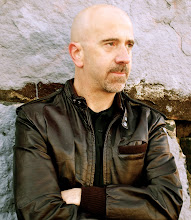 Like all revolutions, the one currently shaking publishing to its core started innocently enough, with some changes that initially seemed harmless to the status quo and a few true believers carrying signs and shouting slogans.
Like all revolutions, the one currently shaking publishing to its core started innocently enough, with some changes that initially seemed harmless to the status quo and a few true believers carrying signs and shouting slogans. E-books. Publishers scoffed at the notion that any but the most dedicated techno-geeks would shell out their hard-earned cash for an electronic tablet dedicated to nothing but words.
But people started buying them. Lots of them. And they began filling their hard drives up with books, plenty of them from big-time authors, but also a lot from authors they may not have been as familiar with. Folks who in the olden days would have been known as "mid-listers."
And then a mid-lister named Joe Konrath became the poster child for this revolution, which suddenly began gathering momentum like a locomotive careening down the side of a mountain. He released a bunch of backlist titles himself electronically, and then he released a brand-new novel electronically without a publisher, and he had the nerve to promise readers of his blog he would keep them informed of the results.
And the results were astonishing. The poster child began making money. Lots of it. More than he had ever made with his traditional mid-list publishing deals. And he huffed and puffed and boasted and proselytized and before long other authors began wondering if maybe they shouldn't follow suit.
And the revolution was on.
Two days ago The Authors Guild published a piece on their blog illustrating how the 75/25 royalty split (75% to the publisher, 25% to the author) of net proceeds in the traditional contract offered by most major New York publishing houses represents nothing more than a significant pay cut to the creator of the work - the author.
If you'd like to see the entire piece and learn how the numbers were generated, you can check it out here, but examples were given and numbers were crunched and one thing became clear - authors are taking a beating with the 75/25 split.
Now, on his blog just this morning, novelist Terrill Lee Lankford announced he had reached a difficult decision - he was ending discussions with a publishing house over the terms for his latest book and would publish it himself electronically. Why? The 75/25 split.
Despite the offer of an advance Lankford termed "very good money," he reasoned that "by the time I finished the book in question the cash would be gone. And by the time that book 'earned out' at a rate of 3-1 in the publisher's favor in e-book sales, the publisher would have seen a small fortune without noticeable expense. And we would be saddled with a deal that would probably haunt my family long after I was dead and gone."
The upshot, of course, is that another mid-lister has decided to follow Joe Konrath into the wilderness of electronic self-publishing. But here's the thing - for a wilderness, it's getting pretty damn crowded out there.















No comments:
Post a Comment